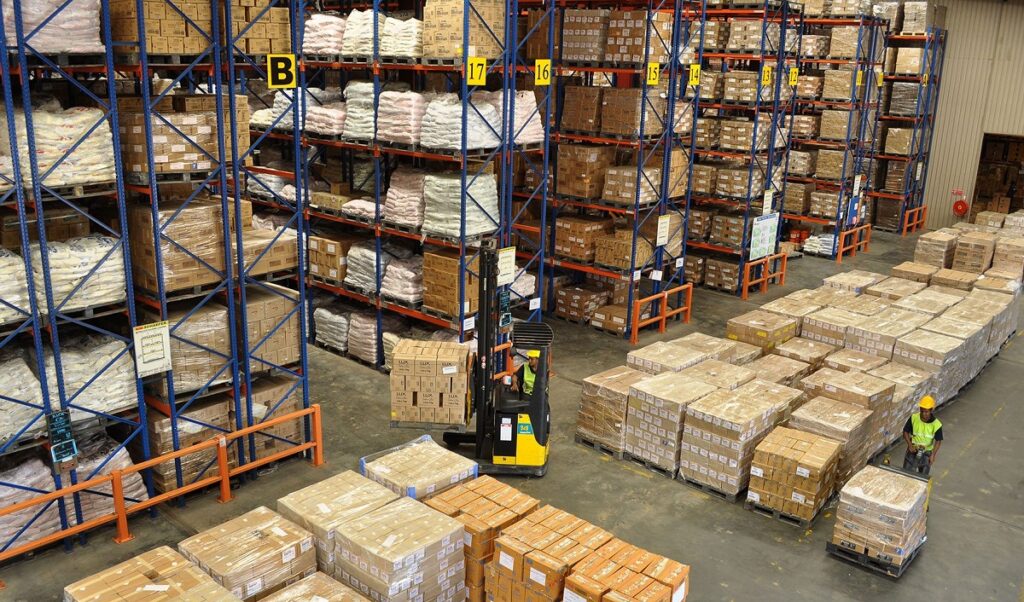
Kolkata, the cultural capital of India, has witnessed a remarkable transformation in recent years, with its economy expanding and diversifying. At the heart of this growth lies a crucial player – warehouses. These storage facilities have become indispensable in facilitating the smooth functioning of various industries, playing a pivotal role in the city’s economic landscape.
The Rise of Warehousing in Kolkata
In recent times, the demand for warehouses in Kolkata has surged, driven by the burgeoning e-commerce sector, manufacturing activities, and the need for efficient supply chain management. The city’s strategic location, well-connected transportation infrastructure, and a burgeoning consumer market have made it a hotspot for businesses looking to establish robust logistical operations.
Strategic Location and Connectivity
Kolkata’s geographical location provides a strategic advantage for warehousing activities. Situated on the eastern side of India, the city serves as a gateway to the northeastern states and neighboring countries like Bangladesh and Bhutan. This positioning has led to an increased demand for warehouses to serve as distribution hubs for goods moving in and out of these regions.
The city’s well-developed transportation network further enhances its appeal for warehousing. The presence of the Netaji Subhas Chandra Bose International Airport and the Kolkata Port facilitates seamless movement of goods, both domestically and internationally. Additionally, a network of highways and railways ensures efficient connectivity to different parts of the country.
E-commerce Boom and Warehousing
The rapid growth of e-commerce has been a game-changer for the warehousing sector in Kolkata. With the increasing preference for online shopping, businesses are under pressure to ensure timely and accurate deliveries. Warehouses, therefore, play a crucial role in the fulfillment process, acting as storage centers for the vast array of products sold online.
E-commerce giants and smaller businesses alike are investing heavily in warehouses near Kolkata to establish fulfillment centers. These facilities are equipped with advanced technologies, such as automated storage systems and order-picking robots, to streamline operations and meet the growing demands of the digital consumer market.
Manufacturing and Industrial Warehousing
Apart from e-commerce, the manufacturing sector has also contributed significantly to the rise in demand for warehouses in Kolkata. The city is home to diverse industries, including textiles, steel, chemicals, and pharmaceuticals. These industries require ample storage space for raw materials, finished goods, and work-in-progress inventory.
Warehouses near industrial zones in Kolkata serve as extensions of manufacturing facilities, providing a buffer for inventory and ensuring a continuous supply chain. The efficient management of these warehouses enables manufacturers to optimize production schedules, minimize lead times, and respond swiftly to market demands.
The Role of Warehouses in Supply Chain Management
Warehouses play a pivotal role in optimizing supply chain management for businesses operating in and around Kolkata. They act as central hubs for the storage, sorting, and distribution of goods, facilitating a seamless flow of products from manufacturers to retailers and, ultimately, to consumers.
By strategically placing warehouses along the supply chain, businesses can reduce transportation costs, minimize lead times, and enhance overall operational efficiency. This, in turn, has a positive impact on customer satisfaction, as timely deliveries become more reliable and cost-effective.
Also Read: Navigating the Dynamic Landscape: A Comprehensive Look at Warehousing in Kolkata
Challenges and Innovations in Kolkata’s Warehousing Sector
While the demand for warehouses in Kolkata continues to soar, the sector faces its share of challenges. Limited availability of land, escalating real estate prices, and infrastructural bottlenecks are some of the obstacles that need to be addressed for sustained growth.
To overcome these challenges, the warehousing industry in Kolkata is witnessing a wave of innovations. Companies are exploring vertical integration, utilizing advanced technologies for space optimization, and adopting sustainable practices to make their operations more environmentally friendly.
The Future of Warehousing in Kolkata
Looking ahead, the future of warehousing in Kolkata appears promising. As the city continues to evolve as a major economic hub, the demand for efficient storage and distribution facilities is likely to grow. The integration of technologies such as the Internet of Things (IoT), artificial intelligence, and blockchain is expected to further revolutionize the warehousing landscape, making operations more streamlined and data-driven.
Additionally, government initiatives aimed at improving infrastructure and easing regulatory processes will contribute to the sector’s growth. The warehousing industry in Kolkata is poised to play a pivotal role in supporting the city’s economic development by providing the logistical backbone for various sectors.
Conclusion:
In conclusion, the rise of warehouses in Kolkata is emblematic of the city’s economic resurgence. From supporting the e-commerce boom to serving as crucial components of the manufacturing supply chain, these storage facilities are the unsung heroes of Kolkata’s thriving economy. As the city continues to embrace technological advancements and overcome challenges, the future of warehousing in Kolkata looks brighter than ever, promising to be a key driver of economic growth and prosperity.